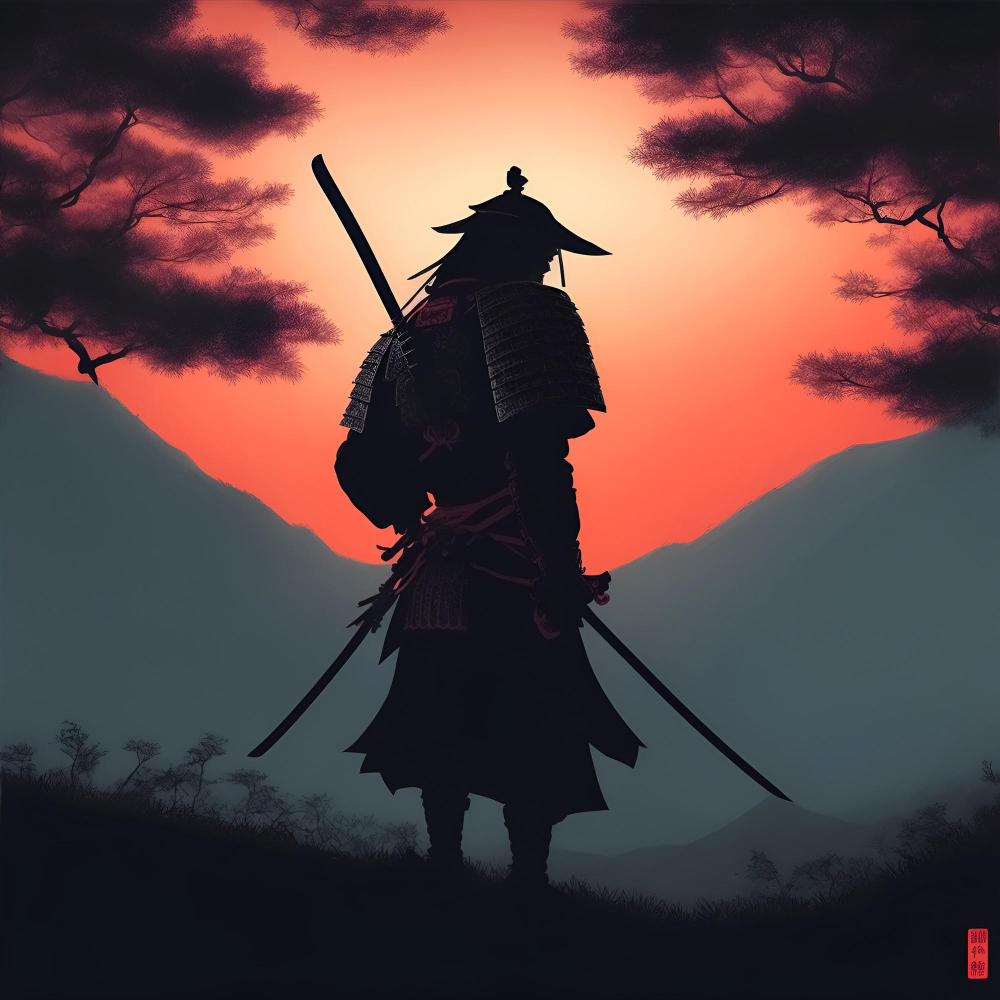Ronin: The Masterless Samurai of Feudal Japan
By Renshi Aaron Kenneally

Ronin
The image of a solitary warrior wandering the countryside, a katana by their side and a determined look in their eyes, is an iconic symbol of feudal Japan. These warriors, known as Ronin, were masterless samurai without a lord to serve. The term "Ronin" literally translates to "wave man" or "drifter," reflecting their transient existence. In this article, we will delve into the fascinating world of Ronin, exploring its history, reasons for existence, and enduring legacy.
The Origins of Ronin
The concept of Ronin emerged during Japan's tumultuous Sengoku period (1467-1615), marked by constant warfare and political upheaval. Samurai served as the military elite and were bound by a strict code of loyalty and honour to their feudal lords, or daimyo. However, as battles raged and power shifted, many samurai found themselves without a master. These masterless warriors became Ronin.
Reasons for Becoming Ronin
Several factors could lead a samurai to become a Ronin:
-
Death of a Lord: When a daimyo perished in battle or through political intrigue, his loyal samurai were often left without a purpose. Some chose to become Ronin rather than serve a new lord.
-
Defeat in Battle: A samurai who suffered defeat in battle might lose their lord's favour or face punishment. In such cases, becoming a Ronin was a way to avoid dishonour.
-
Discontent or Disagreement: Samurai sometimes disagreed with their lord's decisions or policies. They might leave their lord's service and become Ronin if their objections were not heeded.
-
Financial Hardships: Economic difficulties could force samurai into Roninhood, as they could no longer afford to maintain their equipment and lifestyle.
Life as a Ronin
Life as a Ronin was far from glamorous. These warriors faced numerous challenges and hardships:
-
Financial Struggles: Ronin often struggled to make ends meet. Without a lord to provide for them, they had to seek employment as bodyguards, mercenaries, or in other occupations.
-
Social Stigma: Ronin were often viewed with suspicion and mistrust by the samurai class and the general population. They were seen as potential troublemakers or criminals.
-
Isolation: The life of a Ronin could be lonely and isolating. They needed the camaraderie and support network that serving a lord provided.
-
Constant Vigilance: Ronin had to be ever-vigilant, as they were frequently targeted by rival samurai or faced the risk of being hired for dangerous assignments.
Legacy of the Ronin
Ronin left an indelible mark on Japanese history and culture despite their challenging circumstances. Their stories of resilience, honour, and self-reliance continue to captivate people today. Some famous Ronin, like Miyamoto Musashi and the 47 Ronin, have become legends in their own right.
Ronin in Popular Culture
Ronin's enduring legacy is evident in various forms of art and media. Numerous films, books, and artworks depict their struggles and adventures. One of the most famous examples is the tale of the 47 Ronin, a group of masterless samurai who avenged their lord's death, demonstrating unwavering loyalty and honour.
Conclusion
The Ronin, masterless samurai of feudal Japan, were a unique and intriguing phenomenon born out of the turbulent Sengoku period. A complex interplay of political, social, and economic factors shaped their existence. While the life of a Ronin was fraught with challenges, their legacy endures as a testament to the enduring values of honour, loyalty, and resilience in the face of adversity. The Ronin serve as a timeless symbol of the samurai spirit and continues to captivate the imagination of people worldwide.
Book a Free Trial Class at Bushido Karate Club
Bushido Karate Club is currently accepting new members. Contact us today to book a trial class in Douglas or Carrigtwohill and begin your karate journey. Places are limited so call today to avoid disappointment.
Tel: +353876307006






